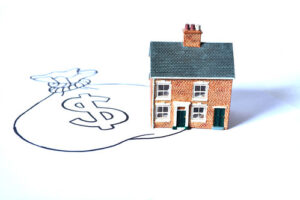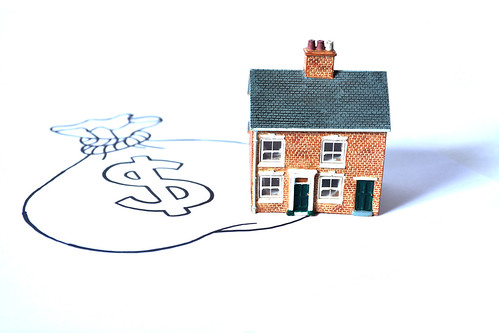If you watch any home improvement networks, you already know that house flipping is all the rage. Despite these shows being billed as reality TV, they don’t show all that goes into flipping a house. They can make it look a lot easier than it is. If this is an investment pursuit that interests you, make sure to do your due diligence and learn all you can before jumping in with both feet. You want to avoid costly, time-consuming rookie mistakes. Here’s some of what you can expect to encounter flipping a house for the first time.
What Is House Flipping?

House flipping is the practice of buying a house as an investment to fix it up and resell it for a profit. As an investor, you’re not planning to live in the house or hold onto it for a long time. The aim is to invest, renovate, and turn the house around for a profitable sale in a short period of time. You’ll be looking for a discounted property that may need a substantial amount of work, which is why it’s valued lower than other homes in the area.
Financial Qualifications for House Flippers
There are a few financial qualifications required for a fix-and-flip loan, including:
- Credit score. You’ll need to have a minimum credit score of 620 to qualify for a conventional loan. Since it’s a loan for an investment property, you won’t be qualified for any government-backed loans, such as a VA or FHA loan.
- Down payment. Because mortgage insurance doesn’t apply to investment properties, you’ll need to have enough capital to make a down payment of at least 20%.
- Reserves. After making your down payment and paying the closing costs on the property, you’re required to have enough funds left in your bank account for six months of mortgage payments.
- W-2s. You need to have a solid work history. You’ll need to show lenders that you’ve been at the same job for two years, at the very least.
How to Find a House to Flip
While you may be tempted to strike out on your own, you’re much better off working with a reputable real-estate agent. If you’re a first-time flipper, a good realty professional can save you from many mistakes and pitfalls. If you know anyone already into house flipping, ask for recommendations. If not, do some research. Find an agent who’s familiar with working with house flippers, read up on their background, and check out reviews from prior clients.
Once you find the agent you want to work with and tell them what kind of house or property you’re looking for, they’ll add you to an MLS (multiple listing service) that factors in your criteria and matches it to houses for sale. All you have to do is wait for properties that fit your specifications to come on the market and then tour the houses. From there, it’s a matter of which house appeals to you, has a manageable amount of required renovations, and has the best chance of turning a profit.
Should you Do It Yourself or Hire Contractors?
The decision on who will perform the renovations depends on several factors, including how broad the scope of the work is, how specialized it is, and how handy you are. It’s also a matter of time; do you have the time to spend on doing it yourself? Next, will you enjoy putting in that sweat equity? Most of all, do you have the expertise required for all the renovations? If not, you could do some of the work yourself, such as painting, cosmetic work, and minor repairs, and leave the rest to the experts.
Particularly for plumbing, gas, or electrical work, fixing it yourself without the necessary skills can create a disaster that will cost you more than the repair needed initially. You’ll just end up needing to hire a contractor to pull the job out of the mess you made. Knowing your limitations is a good thing, so don’t try to cut corners on jobs you know you can’t do. In the long run, you’ll save yourself some headaches, plus the time and money, by getting it done right the first time.
There are considerations to keep in mind when renovating a property. These include:
- Don’t neglect to get the house and entire property inspected by a professional. You need to know if any hidden issues may end up costing you a bundle. If the home inspection turns up too many issues, you need to have the option of passing on the deal. It’s better to seek out another house that’s better suited to your needs than get in over your head by diving into a problematic house just because it’s available.
- Don’t over-improve the house and property. Unless you’re dealing with a luxury marketplace, you’ll want to keep your renovations moderate. Don’t skimp when it comes to safety and structural issues, but when it comes to expensive wall finishes, pricey marble countertops, and other excessive cosmetic embellishments, skip them. You want to appeal to a broad market of house buyers. You just need the house to be functional, structurally sound, and cosmetically appealing inside and out. The lawn should look well kept, and the house’s exterior should have some unique touches for curb appeal.
- Don’t ignore the rest of the neighborhood. If you find a house that seems like a great deal but is suspiciously low in price, don’t take the plunge before touring the rest of the neighborhood. If there are many boarded-up houses or abandoned lots near the one you want to buy, you may need to reconsider. The surrounding area will influence its market value. No matter how significant your renovation is, you could lose money or make limited profits if your investment house is in a less than a sought-after neighborhood.
The Road to Real Estate Riches
Educating yourself, being realistic about the process, and working with experienced financing professionals, a good real-estate agent, and reputable contractors will make your first time flipping a house a success. It’s certainly not easy, and there are many elements to keep track of, but if you’re up for the challenge, it’s a great way to get started in real estate investing. If you’re interested in learning more about investing in house flipping, reach out to the knowledgeable team at Titan Funding today. We’d be happy to discuss options with you.

